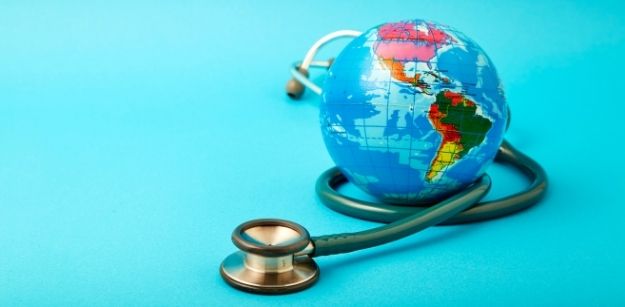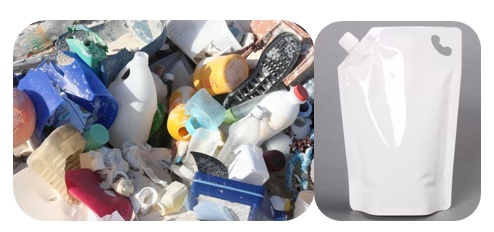WHO- World health organization was just a general knowledge fact on any quiz or game show for most people of this world until the pandemic hit. We got to know what it is and what its functions are. WHO was formed on 7th April, 1948.Every year their anniversary is commemorated as ‘World Health Day’, as an initiative to raise awareness to all health-related issues round the globe. Every year WHO follows a theme for the world health day. This year’s theme is – ‘Our Planet, Our Health’. The main reason behind this theme choice was due to the combined repercussions of Covid-19 Pandemic, severely polluted planet, prevalent diseases and extreme weather events we all witness in the last 2 years alone. Be it -Floods in UK, Germany and Australia, Winter storms in Spain and Texas, Heat wave in Canada and Moscow, Ice and Rock avalanche in India and Nepal to the wild fires of Greece and USA. To add to our existing major dilemmas – last year in 2021, scientists found traces of microplastic in 210 commercially important fish species. We as humanity hit another low again when this year scientists found micro-plastics in human blood. Plastics, chemicals and diseases have infiltrated our body and our planet.


This pandemic left even the previously healthy people with lasting health effects -Shortness of breath, fatigue, headache and what not. And increased the stress and anxiety levels in many children and adults. The natural balance of this world seems more evidently out of place. Be it- on spiritual, mental, physical and even geographical level. It would be safe to say the we as humanity are on the precipice of the end-of-the-times, we all saw in movies. We have reached a time when movies like I am Legend, Diverge, Wall-E and etc. seem to be prophetic- Just like -The Simpsons. There seems to be no sign of light at the end of this tunnel. Being passive in the past has led to where we are today. Only way to make life sustainable for future generations is by taking an active stance.
Here are few strategies, we can adopt right now to save ‘Our Planet, our health’, that can have a significant impact on the environment.
1. Opting for refill packs instead of Plastic pet bottles/containers
Plastic was nevertheless the best invention humans ever came up with. It considerably reduced cutting down of trees, made life easy for medical industry (syringes, containers, medical devices etc.), also profiting many other industries. The revolution it created in the business industry is unparalleled. All it required was the proper usage and disposal discipline. Plastic made life easy but ended up making people lazy. People just use the products and dispose it off in the trash bin. Without ever thinking where it ends up and what is its end use. This took away personal responsibility from every individual towards the environment. Before the invention of plastic, people were careful with their resources and also did not have a fast-paced life with fast food and other superficial products like now we do. Plastic is now even found at the bottom of ocean floor. Major portion of the plastic around the world is generated by the toiletries/ hygiene industry. Every time we take a stroll through the super market- we load our carts with these products and neglect looking for the refill pack of the same products. What good is going to come out of buying refill packs? one might ask. Well, if even one single person starts to buy refill packs for their available products, it will reduce waste generated by that one person. That could range from shampoo bottles, detergents, body washes, even refill packs for their favorite food products. Now, multiply this outcome to hundreds and thousands of people. Imagine the amount of plastic we all will stop, from being ending up in the landfill. The repercussions of this movement will cause commercial giants to establish refilling counters in the supermarkets and increase the manufacturing of the refill alternatives of their products. And if this plastic-cutting-down movement were to go on for even a year, can you imagine how much plastic we would have curtailed by the end of it, instead of it ending up in a landfill. Therefore, switch to refill packs.


2. Being pro-active by taking part in initiative drives and Voluntourism
Pandemic made people realize how connected we are to another in this social fabric of the society. Made many people get serious about social issues and causes. Pandemic caused the entire collective consciousness to awaken to the unfiltered reality of this world. That goes with saying, the number of online petitions being signed on the daily basis. But signing petitions isn’t enough to save our planet from the state we have reached. We have to become pro-active by taking part in local or international environmental initiatives such as- clean-up drives, conservation programs, reforestation campaigns. ‘Voluntourism’ is one way to be able to do that. Voluntourism is the extended branch from the main trunk of eco-tourism. Voluntourism is the act of doing service towards the benefit that particular region, where one is vacationing.


Pandemic has only made people realize the importance of being part of a community, forging meaningful relationships, and rise above from the superficial world of anxiety inducing social media. And what better way to connect to new people after 2 years of solitary confinement, than by taking part in campaigns and voluntourism. Where like-minded individuals get to connect and dedicate their time and effort towards making this world a better place. Voluntourism has helped many under-developed and developing nations. It has already helped in bigger projects. Be it – rural education, women’s welfare, wildlife conservation, beach clean-up drives, reforestations campaigns, organic farms and etc. Online petitions won’t do much unless we get our hands dirty and help clean the mess, we have created for ourselves. Working for such causes help in heightening of social skills and gives the participant a sense of purpose in life.
3. Get creative
People are increasingly becoming conscious about their waste generation, which led to the creation of a lifestyle called ‘Minimalism’. Though minimalism is not everyone’s cup-of-tea, one can resort to DIY-ing their waste stuff to reduce their carbon footprint. DO-IT-YOURSELF involves up-cycling your used waste containers or boxes to create something that can have different use other than its original design and intention. There has been a sharp rise in the DIY videos on the social media platforms. Incorporating waste plastic bottles, upcycling glass ware, to reusing every waste product possible. One doesn’t need to buy pot to plant saplings, best is to creatively incorporate used product containers and give it a personal touch. Making hanging vertical planters, knitting plastic rugs or bags from plastic bags, aesthetically appealing show display items.


There has been a rise in the furniture thrifting community which aims at upcycling old worn-out furniture and restoring it to a completely new state, this upcycling led to creation a niche business for many people.
4. Carpooling your way to conserve fuel
Rise in the standard of living led to an exponential increase in the buying power. Same can be observed when it comes to increase in car sales in the last 3 decades alone. More the number of cars, more depletion of natural resources and more harm to the environment. Better option to do your bit for the environment is carpooling with your co-worker, neighbors or friends. It is important to think about fuel consumption now so that leaves behind some resources for our future generation. Consider walking shorter distances, rather than taking out your car every time you go out.


5. Conserving water
When washing vegetables and fruits, do not wash it under the running tap water, rather wash it in the filled bucket or vessel and use it later to water your plants. Same can be done with our beloved pet’s water bowls. When changing water for our pets, instead use the very same water for plants. Filling tubs with required amount of water to bathe pets. It prevents over use of water and you only end up using the amount you need.


These are few of many practical strategies out we there, which are doable, light on pocket, and also puts an end to our consumer centric mindset. Thank you.



